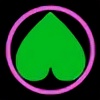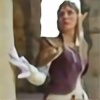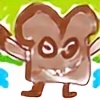HOME | DD
 Arbitran — [Theory] Majora's Mask ~ Link's Damnation? (1)
Arbitran — [Theory] Majora's Mask ~ Link's Damnation? (1)

Published: 2014-08-10 19:33:32 +0000 UTC; Views: 4416; Favourites: 33; Downloads: 5
Redirect to original
Description
"You've met with a terrible fate, haven't you?"Well-known among Legend of Zelda fans is the greatly somber and often disturbing 2000 installment of the series: Majora's Mask. Deeply connected to this theory is the "Link is Dead" theory of Majora's Mask, which I will discuss more directly soon, in Part 2 of this sequence of theories.The Happy Mask Salesman is a mysterious and often disconcerting figure, steeped in uncertainty, and infinitely suspicious. Appearing first in Ocarina of Time, he was found as the proprietor of the Happy Mask Shop in Hyrule Castle Town's marketplace: his business was peculiar from the start however, as he immediately made clear that he did not personally sell his masks, but instead opted to distribute them to others, to sell for him. Beyond Link's potential business ventures in cooperation with the Happy Mask Salesman, his role in Ocarina of Time was minor.
In Majora's Mask however, he was thrust inexplicably into the spotlight, as a highly suspect figure of strange motive. Enlisting the help of Link to retrieve Majora's Mask, a "precious" artifact of dark magical power, the Happy Mask Salesman seeks to recover the mask from the Skull Kid (or Stalkid) who had stolen it. All the while however, he makes clear that he is a "busy man", and that he must depart after only three days: making clear to Link that it is of utmost importance that he reclaim the mask in that time, otherwise "something terrible will happen".
Firstly, it is of note that the Happy Mask Salesman appears to have some inspiration from the character of Gollum from The Lord of the Rings: both in his erratic and inscrutable behavior, and his fixation on a dark magical artifact (a connection made quite apparent from his repeated use of the word "precious" in reference to Majora's Mask). All this is made plain in light of the fact that Takashi Tezuka, a key influence on the design of Majora's Mask, is a noted fan of The Lord of the Rings, and was inspired by the books when helping to design the Zelda games.
At first, it would seem that the Gollum-Happy Mask Salesman connection ends there, but his character is far more complex and enigmatic. Unlike Gollum, the Happy Mask Salesman seems to possess bizarre, paranormal abilities. For example, he has displayed the power to produce a gigantic piano out of thin air, or to vanish at will. Even his movements are otherworldly: seeming to jump between motions in an odd, disjointed fashion, instantaneously. During the course of Link journey in Majora's Mask, the Happy Mask Salesman inhabits the Clock Tower: a location in which time seems to be standing still from the perspective of the outside world.
The Happy Mask Salesman also appears to have some deep connection to the magical melody called the Song of Healing: he teaches it to Link (using the aforementioned piano), telling him that it can be used to heal troubled spirits, and turn them into masks. How he himself learned this melody, and by what means he uses its magic (as he does not seem to explicitly possess a magical instrument, such as the Ocarina of Time), remain undivulged.
The Happy Mask Salesman's mental state seems bipolar, rapidly shifting between emotions: his usual, eerie calm easily giving way to intense sadness , rage , etc., which may pass just as quickly as they arrived. In particular, his emotions are generally tied directly to the state of his masks: becoming enraged when Link fails to pay him back for masks he had sold, or when he becomes impatient in his wait for Link to recover Majora's Mask.
His interactions with Link are typically manipulative, and for his own unclear purposes; his usual tactic is to elicit Link's cooperation by promising reward or help in return (e.g., when Link was turned into a Deku Scrub, the Happy Mask Salesman promised to revert him to his human form, on the condition that he retrieve Majora's Mask for him to repay him).
The history of the mask known as Majora's Mask is shrouded in mystery, and dark in those parts which are divulged. The Happy Mask Salesman states that it was an "accursed item", used by a tribe of dark sorcerers in the ancient past in hexing rituals: he also states that he went to "great lengths" to acquire the mask. It's power was said to be so great and wicked that the ancient ones hid it away in shadows, "preventing its misuse": presumably the Happy Mask Salesman's "great lengths" in obtaining it are tied to this.
The meaning of the name "Majora" (ムジュラ in Japanese: or "Mujura", or "Mujula") is difficult to ascertain. It may be rooted in the Japanese majo (マジョ), meaning "witch" or "sorceress", or perhaps is a Westernized bastardization of majin (マジン), meaning "evil spirit" or "wicked god", with a feminine -la intended to give a Western indication of the female gender. In any case, it seems indicated strongly that Majora is female. The name is also speculated to be connected to the ancient Marajoara culture of Brazil (noted for their masks; Brazilian culture is also one from whence the creators of Zelda state they have taken inspiration), perhaps to the Spanish mujer (or Old Spanish mugier), meaning "woman", or majolica (a type of glazed earthenware named for the island of Majorca, which was once a commerce center for work from Valencia, Spain; majolica masks may even resemble the Skull Kid somewhat). Together with Majora's theme music having a Latin flavor, it seems clear that Majora is tied quite closely to Hispanic culture, the female gender, and magic (especially evil or demonic magic). The forms that Majora takes when confronted by Link (Majora's Incarnation and Majora's Wrath) also seem to indicate femininity, as they let out female screams, and and seem to have features resembling breasts and ovaries. Furthermore, Majora's Mask can be compared to the Japanese hannya mask, a mask used in magical and religious ceremonies, possessing pronounced eyes and horns, representing a dangerous demon born from the corrupted souls of evil women.
Now, getting into more serious theory territory, at last.
On the Moon, which serves as the home of Majora's Mask after detaching itself from Skull Kid, Link encountered masked children: four bearing masks of powerful foes Link had vanished, and a fifth donning Majora's Mask. These children are highly mysterious, saying and doing very little, apart from engaging in games with Link. Most enigmatically (and perhaps disturbingly), they remark on the number of masks that Link carries with him, asking him if he will "too...[...] be a mask salesman". The appearances of the children is uniform and simple, with white clothes, pale skin, and hair of the same color and style as the Happy Mask Salesman, differing only in the masks that they wear.
Who are these masked Moon Children? And who is the Happy Masked Salesman?
I posit that the Happy Mask Salesman is none other than the Devil himself. His mysterious and disconcerting nature, coupled with his paranormal powers and arguably insane and demonic behavior indicate at the very least that he is no ordinary human. He also seems to have an unusually great knowledge of the history of Majora's Mask: perhaps it is simply his expertise with regards to his masks, but could it be a deeper connection?
And what of the ancient tribe of sorcerers who made Majora's Mask? Could it be that the Happy Mask Salesman knew them, and perhaps taught them the Song of Healing, or a similar song, to create the mask? Or could the Happy Mask Salesman have been there, and given them the mask, only to become enraged when they hid it away, necessitating that he recover it?
The Happy Mask Salesman is a dark and manipulative being, with no clear motivation apart from an apparent Gollum-like obsession with his masks, and frighteningly unstable behavior. Moreover, this being is possessed of powers far beyond any mortal, which he seems to use casually.
It can be speculated and inferred based on evidence that Link in Majora's Mask is, in fact, dead: and not merely dead, but in either hell or purgatory. (This will, again, be discussed further in Part 2.) Keeping that in mind, the Happy Mask Salesman can be seen as a manifestation of Mara, the Buddhist devil of death, enticing Link at every turn with seemingly irrefusable offers. Likewise, given the Zelda franchise's strong Western inspiration, this Devil can be seen as representative of Satan himself, or something similar (perhaps Mephistopheles or Iblis).
"Why would the Devil be a mask seller?", I hear you asking?
Quite simply, a mask represents suspicion and secrecy: that there is something to hide, something mysterious that's being concealed. A mask is a disguise: falsehood. A mask is a false face, with a false emotion, concealing whatever truth lies behind it.
Or perhaps the Happy Mask Salesman isn't the Devil, per se, but a more neutral figure?
It is possible that he represents a form of Inari, the kami patron of merchants: associated with the kitsune fox spirits and trickery.
Whatever his exact inspiration, he is clearly a major supernatural figure. But what is his motive? To what end does he lead Link? Are his actions purely self-seeking, manipulating Link to retrieve Majora's Mask for his own purposes? Or is he intentionally directing Link towards some larger goal?
If Termina is a sort of hell or purgatory, then the Happy Mask Salesman's position as the Devil can perhaps be seen in the light of temptation: is the Happy Mask Salesman persuading Link to act wickedly? Is Link in fact a villain in Majora's Mask?
The Moon Children could be speculated to be related somehow to the Happy Mask Salesman: perhaps demons, or emanations of himself? But if the Moon Children are related to the Happy Mask Salesman, then why does the Happy Mask Salesman not recover Majora's Mask when it is worn by the fifth Moon Child? Perhaps it was against his will: much like Skull Kid was possessed by Majora, perhaps the Moon Child was possessed in kind.
Majora's Mask describes the enigmatic Fierce Deity's Mask (鬼神の仮面 in Japanese; kishin no kamen, or "mask of the demon god") as "the true bad guy"; and moreover Link is warned upon obtaining it that it may contain dark powers "as bad as Majora". Is the culmination of Link's journey (the Happy Mask Salesman's manipulation) to receive the Fierce Deity's Mask? In essence, to be possessed by some mysterious "demon god"? If the Happy Mask Salesman is the Devil, and means to persuade Link down a path of darkness towards damnation, causing Link to be possessed by a "demon god" would presumably fall into line with that reasoning. It can be inferred that the "demon god" is also intended as a pun, given it appears in the context of the fifth Moon Child wishing to play tag with Link, and thus gives him the mask: in Japanese, tag is oni-gokko, meaning "pretending to be an oni (demon)". Majora and the "Fierce Deity" each appear to be wicked, sinister deities of some ancient, vanished culture (perhaps the ancient tribe spoken of by the Happy Mask Salesman).
Perhaps Majora was the goddess of the ancient tribe of sorcerers (perhaps benevolent to start, and driven to insanity and wickedness by the hexing rituals of the tribe, and sealed away?), and the Fierce Deity a god of another, rival tribe not mentioned. Or perhaps the Fierce Deity and Majora were worshiped by the same ancient tribe, as warring gods. The Fierce Deity will be further discussed in later parts of this theory.
Accompanied by the fairy, Tatl, Link (immediately after his first encounter with the Happy Mask Salesman) entered Clock Town; during Tatl's conversing with Link, she says quite emphatically:
"He gives me the creeps, that mask salesman was the…"
Was Tatl about to say... "Devil"? Maybe. Maybe not. But there seems to be some reason to think that she was indeed about to identify the Happy Mask Salesman as the Devil himself.
Now, perhaps the most important part of this part of the theory: the Happy Mask Salesman being the Devil isn't necessarily bad. Perhaps like Paradise Lost or the stories of Lucifer or Baal, the Happy Mask Salesman is not necessarily wholly evil: this would also be in line with Japanese conception of divinity, wherein kami and oni may be of any alignment, good, evil, or neutral. In some regard, the presence of the Fierce Deity may even be a somewhat dystheistic view of divinity.
As a Devil, the Happy Mask Salesman may not be entirely malicious, and is perhaps a sort of entity overseeing Link's stay in purgatory/hell: but unless Link is successful in his quest (which leads to what? This will be discussed in later parts), he is seemingly doomed to repeat the same three days forever, at the behest of none other than the Happy Mask Salesman...
"You've met with a terrible fate, haven't you?"
Part 2
Related content
Comments: 8

I remember thinking the moon children looked eerily like the mask salesman. Also wondered why the song of healing does not in fact 'heal'but seals away the soul of the one needing 'healing' into the mask. The zora was not dead... the song sealed away his soul (I know, he was almost dead...). The other two were already dead. Pamela's father seems to be the only one actually healed with the song.
As for what Tatl says about the mask salesman, I always assumed it w in regards to 'that was the guy we stole the mask from'...
👍: 0 ⏩: 0

Not to sound rude, but I put this in my favorites to read later.
👍: 0 ⏩: 0

Yeah, the Salesman never struck me as EVIL; he never seems to mean Link any harm, since he gives him some cryptic advice every now and then, and even when he gets angry, it seems to be more of an anger born of fear and distress than anything else. I'd say he's morally ambiguous at worst, which is why I like that your theory here so far allows for a more neutral interpretation.
👍: 0 ⏩: 1

I'd certainly say he's sinister, with an evident agenda, but yes, I wouldn't describe him as evil. Morally ambiguous is a good way to describe it.
👍: 0 ⏩: 0

A very interesting theory. I also believe that the HMS is some sort of supernatural being, possibly the head of the afterlife Link is in.
Thank you for also noticing that the Moon Children have HMS's hair! I thought I was the only one who noticed!
👍: 0 ⏩: 1

Thanks 
👍: 0 ⏩: 0

Oh my God, you're more of a nerd than I thought! <3
👍: 0 ⏩: 1


















